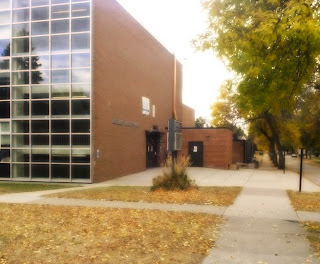
URBAN LEARNER-TEACHING RESIDENCY REFLECTIONS
Week 7 - Triad Two
Monday 11/12/12 to Friday 11/16/12, 8:00 AM- 4:00 PM
Learners and Learning:
Student Learners
Student Learners
“Every great dream begins with a dreamer. Always remember, you have within you the strength, the patience, and the passion to reach for the stars to change the world.”
-- Harriet Tubman
Area of Concentration: Student Learning
Developing the adolescent urban learner’s strength, patience and passion -- in order to bridge the education and opportunity achievement gap
Specific SEPT Element – Provide learning opportunities that support a student's intellectual, social, and personal development.
Report on specific control students – SOUL Focus
Developing the adolescent urban learner’s strength, patience and passion -- in order to bridge the education and opportunity achievement gap
Specific SEPT Element – Provide learning opportunities that support a student's intellectual, social, and personal development.
Report on specific control students – SOUL Focus
Critical Dispositions Matrix
This week’s experiences highlighted four critical dispositions related to Student Learning:
- Teacher respects learners' differing strengths and needs and is committed to using this information to further each learner's development.
- Teacher is committed to using learners' strengths as a basis for growth, and their misconceptions as opportunities for learning.
- Teacher takes responsibility for promoting learners' growth and development.
- Teacher values the input and contributions of families, colleagues, and other professionals in understanding and supporting each learner's development.
Culturally Responsive Framework
Three markers related to Culturally Responsive Teaching and Student Learning have been underscored by this week’s experiences:
- A respect-filled learning environment where all teachers and subjects "reflect a multicultural perspective"
- Instructional planning that accounts for multiple literacies and supports linguistic diversity
- Learning strategies that activate and celebrate cultural knowledge
Implications for Practice
Week Seven of my practicum was one of my hardest and busiest weeks. I anticipated that, so I was very prepared. . . . Teaching all day is very emotionally exhausting. What I am learning is that progress is slow – so slow it’s hard to see at times. Here, patience isn’t just a virtue, it’s a tool. Patience must be wielded and artfully employed!
Student-teaching requires the academic skills for self-directed study and a ready capacity for active reflection. Preparation and practice of this specific skillset has never been addressed in the teacher prep program. Certainly, acquiring these personal learning skills is equal in importance to grasping education psychology concepts or theories of student learning. Just as there are diverse learners, there are diverse learner-teachers. Very few students are naturally self-directed, active reflectors. The practicum experience could be an overwhelming, or even threatening learning environment for some people.
Written reflections are only useful if they lead to action. The action is only useful if it empowers more thinking – through websites, reports, graphs, slideshows, etc. By pre-planning and “preflecting” on specific urban teaching standards and practices, and associating them directly with the production of specific artifacts, I find I am able to actively reflect on both process and progress.
I conclude that the student-teaching practicum greatly benefits from this pre-structuring. The TPA assignments should be incorporated – or better yet, abandoned altogether – so that the urban learner-teacher concentrates on the actualization or realization of reflected experiences and events. Each week’s preflection asks, “What can you learn about what you know?” in a particular domain of practice. The answer directs the production of an artifact.

Framework for Excellence in Urban Classroom Leadership:
- Expect excellence and reward it.
- Be a patient insister and a “warm demander.”
- Recurrently make behavior expectations explicit and assess those established goals.
- Activate metacognition, particularly through use of rubrics and reflection activities.
- Motivate learners with activities that seem pertinent and goals that seem possible.
- Provide goal-directed practice coupled with targeted feedback.
- Provide Culturally Mediated Instruction.
- Teach the “Hidden Rules” of School.
- Have
learners identify their prior knowledge and understandings of key
concepts, issues, or content, and how those things are understood in
their culture/community.
- Reflection is action!









